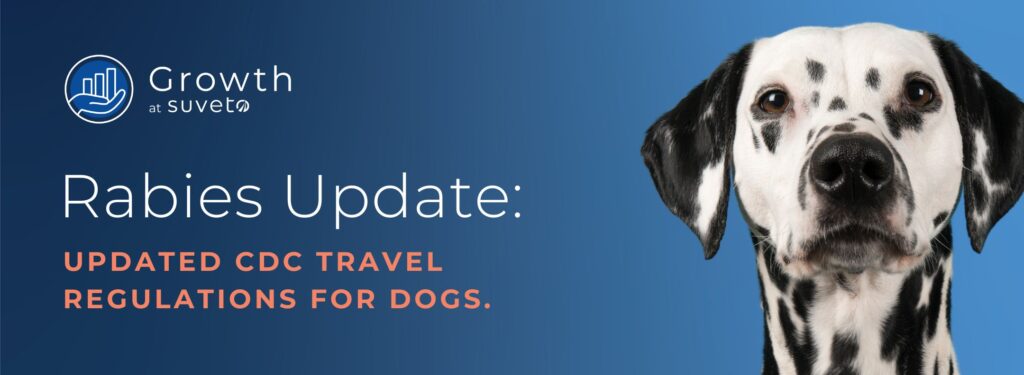Rabies Update:
Everything you’ll need to know (and then some) about rabies and the updated CDC travel regulations for dogs.
Join our live, virtual event on Thursday July 18 at 7 – 8:30 pm EST
Starting on August 1st, 2024, your canine patients who are entering or returning to the United States must meet new CDC requirements.
Are you prepared to help them?
This live virtual event will cover everything you’ll need to know (and then some) about rabies and the updated CDC Travel Regulations for dogs that will go into effect in less than two weeks.
Register today at the Zoom link here >
In joining the webinar, attendees will:
-
- Review principal criteria surrounding the NEW Centers for Disease Control (CDC) regulations that will impact the movement of dogs into and out of the US.
- Gain a perspective on recent changes in the global rabies threat to humans and the expanded risk for canine-variant rabies virus entering the US.
- Review key rabies laws & regulations currently impacting decisions made in clinical practice through a series of scenario-based questions as well as how to access information pertaining to rabies laws/regulations at the State level.
- Understand the meaning and crucial implications of the term “currently vaccinated” against rabies as used in state law.
- Review key differences between the 1-Year and 3-Year labeled canine vs. feline rabies vaccines available in the US today.
Meet the Speaker:
Richard B. Ford is a Professor Emeritus of Internal Medicine at North Carolina State University’s College of Veterinary Medicine. A member of the Feline Vaccination Advisory Panel, he co-wrote its guidelines, in addition to co-writing Kirk and Bistner’s Handbook of Veterinary Procedures and Emergency Treatment. He is a past president of the NAVC Conference and is a member of the scientific program committee. He serves on the AAHA Canine Vaccination Task Force and AAFP Feline Vaccination Advisory Panel. Dr. Ford served as a Brigadier General. He was commissioned through the Health Professions Early Commissioning Program. He earned his DVM degree from Ohio State University, and did his veterinary internal residency at Michigan State University. He remains a highly sought-after speaker and educator throughout our profession.



